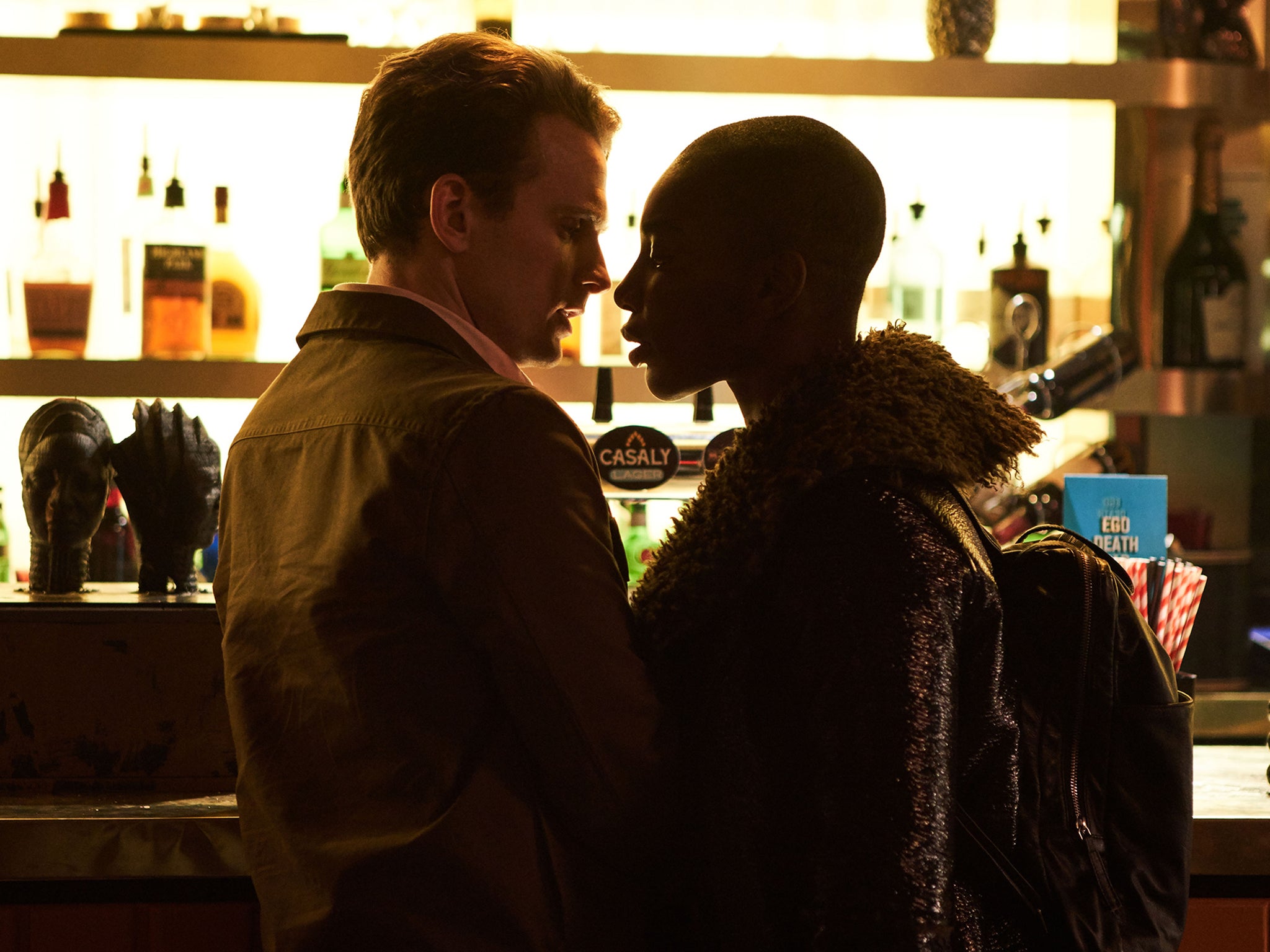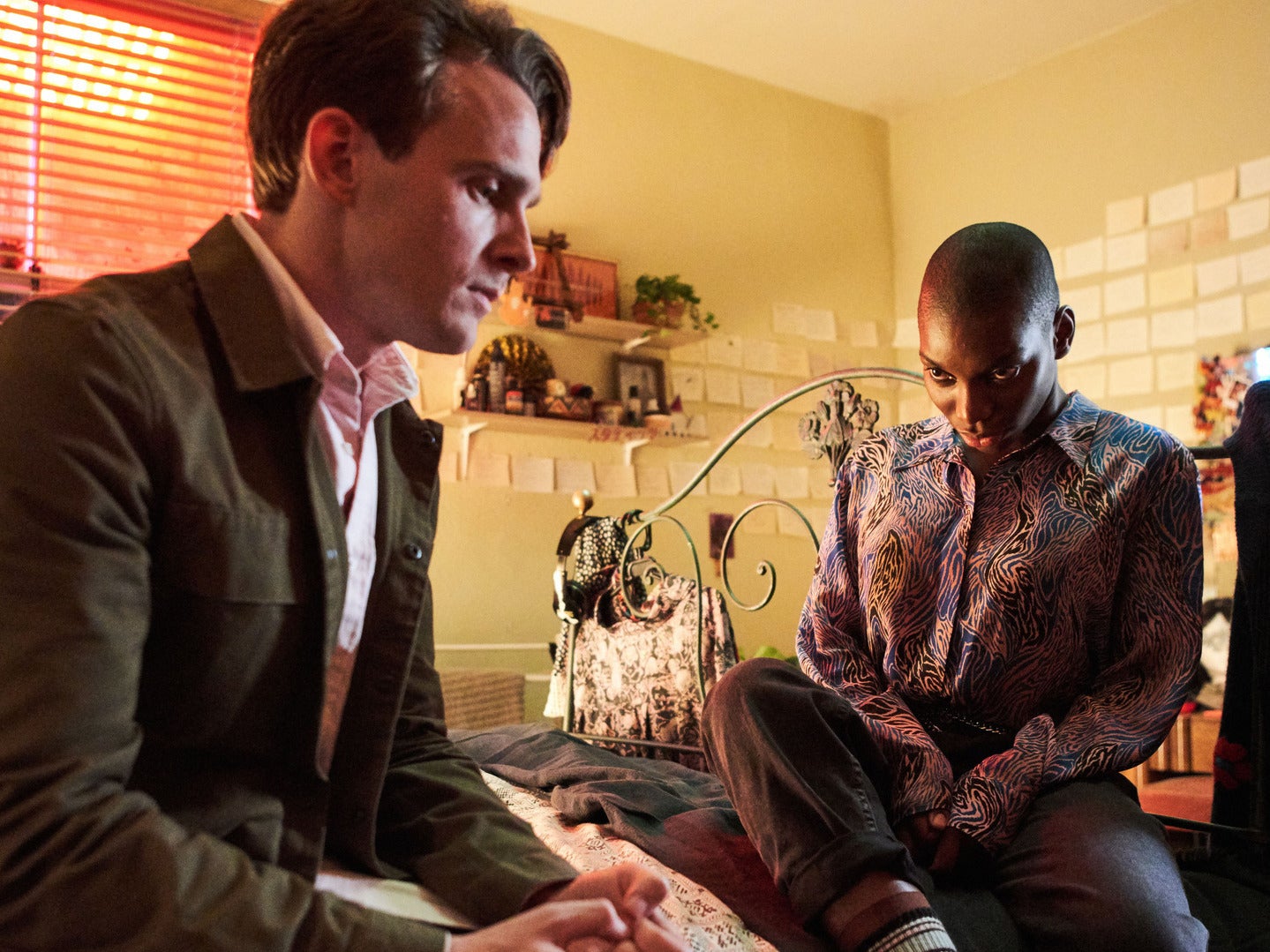Nuance defeats bloodshed: I May Destroy You proves that there are no easy answers to trauma
Michaela Coel’s brilliant drama about the aftermath of sexual assault makes for incredibly disconcerting viewing, says Micha Frazer-Carroll, and is all the more powerful for it


Your support helps us to tell the story
From reproductive rights to climate change to Big Tech, The Independent is on the ground when the story is developing. Whether it's investigating the financials of Elon Musk's pro-Trump PAC or producing our latest documentary, 'The A Word', which shines a light on the American women fighting for reproductive rights, we know how important it is to parse out the facts from the messaging.
At such a critical moment in US history, we need reporters on the ground. Your donation allows us to keep sending journalists to speak to both sides of the story.
The Independent is trusted by Americans across the entire political spectrum. And unlike many other quality news outlets, we choose not to lock Americans out of our reporting and analysis with paywalls. We believe quality journalism should be available to everyone, paid for by those who can afford it.
Your support makes all the difference.
**Contains spoilers**
Full disclosure: I have not always enjoyed watching I May Destroy You. Often, in fact, I have found it stressful, overwhelming and confusing. One reason for this is that writer, star and co-director Michaela Coel’s hit drama about consent, trauma and exploitation consistently refuses to be put in a box. Its final instalments took this to a new level.
The line between hero and antihero, angel and demon, leaps around as each episode unfurls – with the show’s protagonists sometimes behaving in erratic, reckless and confusing ways. Coel, who first rose to fame as the writer and breakout star of E4 sitcom Chewing Gum, doesn’t spoon-feed the viewer. This applies from character development to visual aesthetics – she intentionally challenges and misdirects us, and at the very last minute, we often still cannot predict how the pieces are going to fall together. The show’s roller coaster finale is no exception.
It was not easy for Coel to reach this conclusion. In a widely shared profile for the US website Vulture, the writer/producer talked about the soul searching she went through to find an ending for her own character – the show’s protagonist, Arabella, who was sexually assaulted after her drink was spiked in a club. Coel, who was writing from her own experience of sexual assault, went on a solo writing retreat to a cabin on a 15-acre piece of farmland in Michigan to complete the screenplay. There, she pored through the options regarding what healing could look like for her protagonist. Within the scope of the series, was it even possible? In the Vulture article, which swarmed my Twitter feed for about three days, one question rang in my ears – asked by the writer Alex E Jung: “Must there be bloodshed for there to be justice?”
Carrying this question in mind, I’m pretty sure my heart stopped a number of times throughout the finale. Much to my distress, Coel plays out a number of potential endings – grand dreamlike sequences that could conclude the series (and presumably, Arabella’s book). What would happen if she really did avenge her assault with force, if she killed the perpetrator? No, that doesn’t look right. What if she crafted a complex backstory for him – which she would then have to therapise him through? Surely not. In the most abstracted scenario, its surrealism reminiscent of the film director David Lynch, the club empties out, changes from night to daytime, and Arabella invites the perpetrator back to her flat and sleeps with him.
Each outcome in I May Destroy You makes for incredibly disconcerting viewing, but represents Arabella’s desperate search for closure both as a survivor, and also as a writer and narrator telling a traumatising story. We are forced to acknowledge that in a narrative with as much trauma as Arabella’s, there is no “perfect” ending, because there is no fast, easy or satisfying fix for what she has been through. The final outcome that brings the most solace is completely divorced from the perpetrator – for Arabella, closure does not lie at the “scene of the crime”, her healing is found in emotional processing. Coel was right: with so much hype and history riding on the show, it feels impossible to find an ending that doesn’t leave viewers uneasy. But as Arabella is finally given the space to tell her own story, there is a sense of catharsis.
Commissioners, with whom Coel often butted heads while trying to get the show made, should take heed of the other reasons why the series took off the way it did. From the acting to the soundtrack, the show’s bells and whistles are tweaked to perfection – and we can undoubtedly see the fruits of the fact Coel was granted complete creative control by the BBC. Bursting with colour and authenticity, the final product looks more like a (high-budget) original web-series than a show you tune in to on iPlayer.

Black British rappers such as Little Simz and Kojey Radical accompany the transitional shots of gentrified London. Coel’s co-stars, Paapa Essiedu and Weruche Opia, put in gruelling performances and became breakouts in their own right. The constantly looming presence of influencer culture – from exploitative publishers mining for trauma, to the tumultuousness of sharing personal pain on her social media timeline – feels like a new, more subtle analysis of celebrity that actually makes sense to younger viewers. And, much like HBO’s Insecure, the creators actually know how to light black skin using colour, reflection and filters, a form of attention to detail often missed by majority-white crews. Some white critics have made much fanfare of the representation of race in the show – Allison Pearson, writing in The Daily Telegraph, infamously praised how it allows viewers to forget the characters are black, and instead see them as human beings. But for black people, references to our own foods, trends, dialects and hairstyles aren’t about us begging white audiences for our humanity; they are simply refreshing, relevant and validating because we rarely see our own versions of Britain represented on screen – not to mention on an international stage.
Already dubbed the show of the year by critics and viewers alike, I May Destroy You will undoubtedly be remembered. Perhaps the most crucial thing we will remember it for is how it showed viewers that violation of consent can look like a lot of different things – from stealthing (or non-consensual condom removal), to coercion, to spiking. By playing on the theme that there isn’t always a hard line separating “bad from good, friend from foe... god/devil”, the series ultimately shows how rape culture is a societal issue, while subverting the damaging idea that survivors must behave “perfectly” in every way. Instead, Arabella, Terry and Kwame bring us nuance, complexity, and righteous anger, pain and confusion.
Each survivor’s story looks different – there is no “correct” way to respond to trauma or violation. Accordingly, neither the show nor its ending should be read as a blueprint for healing. But in Arabella’s case, we find some gentle closure in the knowledge that she was not destroyed – she survived.
Join our commenting forum
Join thought-provoking conversations, follow other Independent readers and see their replies
Comments